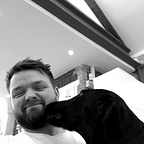Whats the deal with ideation
A handful of thoughts and ideas on how to improve ideation workshops
Experimentation is the key to streamlining innovation. It’s as much about your team than it is you, that why you should look to experiment with different ways of ideating to optimise the methods and environments that suit you all the best. As creative as we do not think we are, everyone is. Each and every one of us just needs a different framework to let our creativity thrive in.
After countless ideation workshops over the last six months of my internship, I have started to reflect on this thought of everyone being creative and the different ways we have looked to improve our own ideation workshops.
This isn’t about a post so much about defining “creativity” because what does that even mean anymore… but a post about how we should keep adapting and reflecting our ideation sessions to utilise the skill sets of the people around us so that we can reach those great solutions. These are my thoughts, tips and ideas on how I could improve my own ideation workshops and I hope you find them useful.
Thoughts, tips and ideas
1. Together alone
Instead of working at our desks behind our computers where we become engrossed or attached to our ideas, we can work together in the same space with the opportunity to share and collaborate on experiences. This means we are effectively becoming one machine whilst working alone.
The phrase “together alone” is one I first came across in the design sprint book. In ideation sessions, it means that each of us is working towards our own concepts and ideas in silence but in the same space with regular intervals in which ideas are shared and progressed.
2. Cutting unstructured debate
Together alone leads to my next thought for improvement. All too often teams are led into a discussion or debate that will lead nowhere. More importantly, though these unstructured debates eat away time and take us away from the questions we are trying to answer in the first place.
I find that creating concepts in silence with scheduled times for structured discussion streamlines workshops into pockets of when and when not to be thinking about solutions. It keeps everyone on the same page and is great for the very early stages of ideation when every possible solution goes. Sticker voting is something that is great for cutting discussion.
3. Stay visual
Once again, this is key to working “together alone”. By keeping all concepts and solutions visual we can make sure everyone in the room can see your thought process. Words should only be used when they are absolutely needed.
Staying visual is maybe the common sense for designers but sometimes people from other disciplines need reminding that even stick men are a great form of visual communication. This point is especially important for me as I am working where English is not most of my colleague’s first language so we encourage everything to be sketched for easier communication.
4. Keep decision making fast
Even the smallest decision eats away at some of your decision making energy and you can lose that stuff fast, make sure to plan decision-making times into the workshop and get through them as efficiently as possible.
This point also extends outside of the workshop though, have you planned your morning routine up to the point of arriving at a workshop? How many decisions have you already made by the time you get there? Decision making is a finite resource so when we need to ideat we should be treating it with extra care!
5. Take regular breaks
Regular breaks are common sense but common sense isn’t common practice. Most of the time we prefer to slog through ideation workshops and decisions just to get it finished as taking a break would be wasting time.
This isn’t the case most of the time. Taking breaks has actually sped up the workshops I have been in as it gives everyone a chance to relax and refresh! Just don’t forget the snacks or coffee.
6. Keep experimenting
These are just some of the thoughts and improvements I have found that work on my own ideation sessions. Obviously there are more than I can share as most of these lessons come in little realisations that only occur through experience. I hope that I am lucky enough to keep experiemnting with how I ideate within teams and come up with better solutions each and every time.
Thanks for reading — I’m currently a user experience intern at Bosch Power Tools and an Industrial Design student at Loughborough University. Feel free to get in touch or check out my website.
